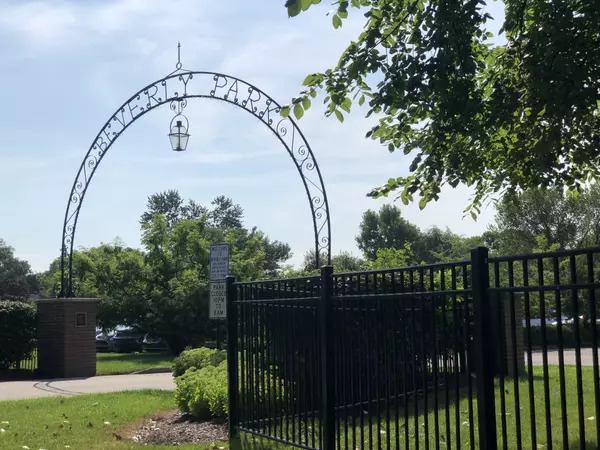4 Ways to Avoid Probate Court for Real Estate Sales in Michigan

Losing a loved one is already a deeply emotional experience, and the added stress of managing their estate can make it even more challenging. In Michigan, families often face the complexities of probate court, particularly with real estate matters. Probate can be time-consuming, costly, and stressful, placing an additional burden on grieving heirs.
Jeff Higgins, a probate real estate expert, emphasizes the importance of proper estate planning to spare families from the probate process whenever possible. This blog outlines four effective strategies to avoid probate court and ensure a smoother transition of property ownership.
Understanding Probate and Its Implications
Before diving into the strategies, it’s important to understand what probate is and avoid probate through proper estate planning. Probate is the legal process through which a deceased person’s estate is distributed to heirs and beneficiaries. This process is supervised by a probate court and involves validating the will (if one exists), paying off debts and taxes, and distributing the remaining assets.
In Michigan, there are several scenarios that typically require an estate to be administered in probate court:
1. No Will: If a loved one passed away without a will, their assets, including real estate, will be distributed according to Michigan probate law.
2. Will but No Living Trust: If a loved one had a will but no living trust or comprehensive estate plan, probate court will still be involved.
3. Unfunded Living Trust: Even if a living trust exists, any property not placed into the trust may still require probate.
4. Contested Estate: Disputes over lifetime gifts, beneficiary designations, wills, or trusts can lead to probate court involvement.
Even when there are no disputes, the probate process can be drawn-out and stressful for grieving families. Probate is also a matter of public record, which means estate matters are harder to keep private. To avoid these situations, it’s crucial to implement strategies that keep real estate out of probate. We highly recommend seeking the advice of an expert estate planning attorney to make sure your heirs don’t get stuck with the burden of probate court.
The Myth of the Will Avoiding Probate
Many people are under the false impression that if they have a will that they will probate. The reality is that even with a will the probate court will still have to determine if the will is valid. Part of the probate process involves submitting the will to the court to be validated and executed according to the decedent’s wishes. A will is a critical component of an estate plan, but it does not bypass probate. Instead, it serves as a guide for how the decedent's assets should be distributed. While having a will can streamline the probate process by providing clear instructions, it does not eliminate the need for probate altogether. A will should be used with other estate planning tools if your goal is to avoid probate.
There are other estate planning tools and strategies that can effectively avoid probate, which are outlined below.
1. Establish a Living Trust
One of the most effective ways to avoid probate for real estate is to establish a living trust. A living trust is a legal document that places assets, including real estate, into a trust during an individual's lifetime. Here’s how it works:
- Creation: The trust is created by the property owner (the grantor) and managed by a trustee for the benefit of the beneficiaries.
- Transfer of Property: The property owner transfers the title of the real estate into the trust. This means the trust becomes the owner of the property, not the individual.
- Management: The trustee manages the property according to the terms of the trust, and upon the grantor’s death, the property is distributed to the beneficiaries without the need for probate.
By placing real estate into a living trust, the property can be transferred to the beneficiaries directly, bypassing probate court entirely. This not only speeds up the process but also keeps the details of the estate private and reduces legal fees. We have had many estate planning professionals share with us that a well-done living trust is the best way to avoid probate.
2. Joint Ownership with Rights of Survivorship
Another method to avoid probate is through joint ownership with rights of survivorship but this method can get complicated and we have seen homeowners try this tactic only to muddy their estate planning and create a problem for their adult children. Joint ownership with rights of survivorship arrangement allows property to pass directly to the surviving owner(s) upon the death of one owner. There are a few types of joint ownership to consider:
- Joint Tenancy with Right of Survivorship: This is a common form of joint ownership where two or more people own a property equally. Upon the death of one owner, their share automatically transfers to the surviving owner(s) without the need for probate.
- Tenancy by the Entirety: This form of joint ownership is available only to married couples in Michigan. It provides similar benefits to joint tenancy with right of survivorship, ensuring that the property passes directly to the surviving spouse without probate.
Joint ownership with rights of survivorship is a straightforward way to ensure that real estate transfers seamlessly upon death. However, it’s important to note that this method should be used thoughtfully, as it can have implications for taxes and the overall estate plan. When someone else is made a joint tenant, they have an immediate ownership interest in the property. This means that the property cannot be sold or mortgaged without their consent, and it may be vulnerable to their creditors. We have seen well meaning homeowners add their adult children to ownership of the home only to complicate their estate planning.
3. Designate Beneficiaries
Designating beneficiaries on your financial accounts, utilizing Payable-on-Death (POD) and Transfer-on-Death (TOD) accounts can be effective for avoiding probate. These accounts allow you to name beneficiaries who will receive the assets directly upon your death, bypassing probate court. This tactic is super easy to do and you just simply have to designate your beneficiaries.
- Payable-on-Death (POD) Accounts: These accounts are typically used for bank accounts. The account holder designates a beneficiary who will receive the funds in the account upon the holder’s death. The beneficiary has no rights to the funds while the account holder is alive.
- Transfer-on-Death (TOD) Accounts: Similar to POD accounts, TOD accounts can be used for securities, such as stocks and other similar investments. The account holder names a beneficiary who will automatically inherit the securities upon the holder’s death.
While these accounts are not directly related to real estate, they can play a crucial role in an overall estate plan, ensuring that other assets are transferred smoothly and reducing the overall complexity of the probate process.
4. Lady Bird Deeds
A Lady Bird deed, also known as an enhanced life estate deed, is another useful tool for avoiding probate in Michigan. Not all states have Lady Bird deeds and we have seen many homeowners combine a will and a Lady Bird deed to ensure their house or real estate will pass smoothly to their heirs. The Lady Bird deed allows you as the property owner to retain control over the property during their lifetime while designating a beneficiary to inherit the property upon their death. Here’s how it works:
- Retained Control: The property owner retains the right to use, sell, or mortgage the property during their lifetime without the beneficiary’s consent.
- Automatic Transfer: Upon the property owner’s death, the property automatically transfers to the designated beneficiary without the need for probate.
- Medicaid Planning: Lady Bird deeds can also be beneficial for Medicaid planning, as the property is not considered a countable asset for Medicaid eligibility purposes and is protected from estate recovery.
Lady Bird deeds offer flexibility and control, making them a very attractive option for property owners looking to avoid probate while maintaining control over their property. If our clients do not have a living trust, we see many homeowners use a will in conjunction with a Lady Bird deed as an estate planning strategy.
Conclusion
Planning ahead and proper estate planning is crucial to avoid the time, expense, and stress of probate court. While your heirs are grieving, you do not want to burden them with forcing them to navigate the probate court process. By establishing a living trust, setting up joint ownership with rights of survivorship, designating beneficiaries, and considering Lady Bird deeds, families can ensure a smoother transition of property ownership and provide peace of mind for their loved ones.
For assistance with probate real estate or questions about these strategies, visit higginspartners.com/probate-realestate. Jeff Higgins and his team specialize in serving the five-county Metropolitan Detroit area of Oakland, Macomb, Livingston, Washtenaw, and Wayne. Through their extensive partner network, they service the entire state of Michigan, providing expert guidance and support during this challenging time.
For personalized advice and professional assistance, contact Jeff Higgins and his team today. Let them help you navigate the complexities of probate real estate with compassion and expertise.
Disclaimer
Jeff Higgins is a professional licensed real estate agent in the state of Michigan. The purpose of this blog is to share information from the perspective of a real estate professional in the State of Michigan. This blog should not be construed as legal advice or used as legal advice in any way. Please consult a qualified probate attorney for legal questions surrounding the probate process. If you do not have a probate attorney, Jeff Higgins and his team are happy to connect you with one of their preferred probate attorneys. Please email Jeff Higgins at jeff@higginspartners.com for more information.
Categories
Recent Posts










GET MORE INFORMATION
Managing Partner | License ID: 6506046014
280 North Old Woodward Avenue, Suite 100, Birmingham, MI, 48009, United States
